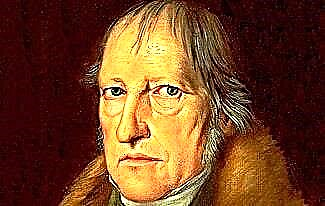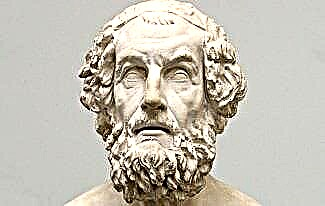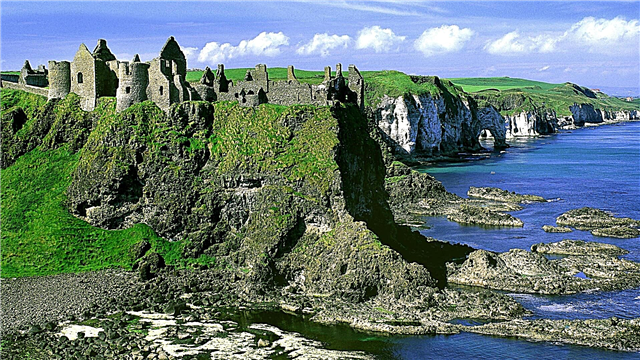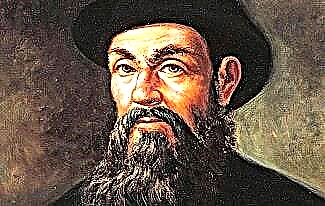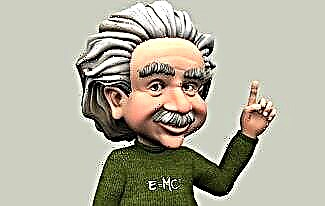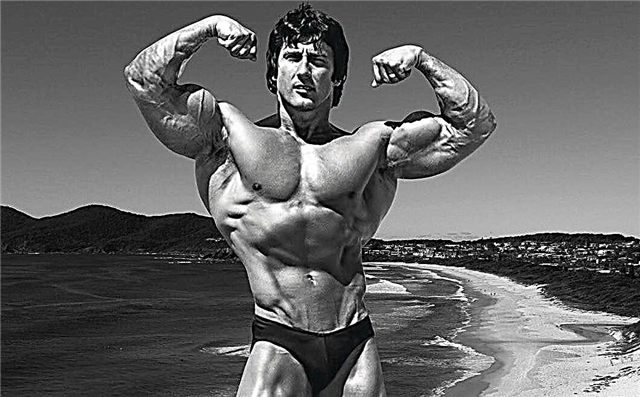Dante Alighieri (1265-1321) - Italian poet, prose writer, thinker, theologian, one of the founders of the literary Italian language and politician. Creator of the "Divine Comedy", where the synthesis of late medieval culture was given.
There are many interesting facts in the biography of Dante Alighieri, which we will talk about in this article.
So, before you is a short biography of Dante Alighieri.

Biography of Dante Alighieri
The exact date of birth of the poet is unknown. Dante Alighieri was born in the second half of May 1265. According to family tradition, the ancestors of the creator of the "Divine Comedy" took their origin from the Roman family of Elisees, who participated in the founding of Florence.
Dante's first teacher was the famous poet and scientist Brunetto Latini of that era. Alighieri deeply studied ancient and medieval literature. In addition, he investigated the heretical teachings of the time.
One of Dante's closest friends was the poet Guido Cavalcanti, in whose honor he wrote many poems.
The first documentary confirmation of Alighieri as a public figure dates back to 1296. 4 years later he was entrusted with the position of prior.
Literature
Dante's biographers cannot say when exactly the poet began to show a talent for writing poetry. When he was about 27 years old, he published his famous collection "New Life", consisting of poetry and prose.
An interesting fact is that over time, scientists will call this collection the first autobiography in the history of literature.

When Dante Alighieri became interested in politics, he was interested in the conflict that erupted between the emperor and the Pope. As a result, he sided with the emperor, which provoked the wrath of the Catholic clergy.
Soon, power was in the hands of the Pope's associates. As a result, the poet was expelled from Florence, on a falsified case of bribery and anti-state propaganda.
Dante was fined a large sum of money, and all his property was seized. The authorities later sentenced him to death. At that time in his biography, Alighieri was outside Florence, which saved his life. As a result, he never visited his hometown again, and died in exile.
Until the end of his days, Dante wandered around different cities and countries, and even lived in Paris for some time. All other works after "New Life", he composed while in exile.
When Alighieri was about 40 years old, he began to work on the books "Feast" and "On folk eloquence", where he detailed his philosophical ideas. Moreover, both works remained unfinished. Obviously, this was due to the fact that he began to work on his main masterpiece - "The Divine Comedy".
It is curious that at first the author called his creation simply "Comedy". The word "divine" was added to the name by Boccaccio, the poet's first biographer.
It took Alighieri about 15 years to write this book. In it, he personified himself with a key character. The poem described a journey into the afterlife, where he went after the death of Beatrice.

Today, The Divine Comedy is considered a real medieval encyclopedia, which touches on scientific, political, philosophical, ethical and theological issues. It is called the greatest monument of world culture.
The work is divided into 3 parts: "Hell", "Purgatory" and "Paradise", where each part consists of 33 songs (34 songs in the first part "Hell", as a sign of disharmony). The poem is written in 3-line stanzas with a special rhyme scheme - terzines.
"Comedy" was the last work in the creative biography of Dante Alighieri. In it, the author acted as the last great medieval poet.
Personal life
Dante's main muse was Beatrice Portinari, whom he first met in 1274. At that time he was barely 9 years old, while the girl was 1 year younger. In 1283 Alighieri again saw a stranger who was already married.
It was then that Alighieri realized that he was completely in love with Beatrice. For the poet, she turned out to be the only love for the rest of her life.

Due to the fact that Dante was a very modest and shy young man, he only managed to talk with his beloved twice. Probably, the girl could not even imagine what the young poet liked, and even more so that her name would be remembered many centuries later.
Beatrice Portinari died in 1290 at the age of 24. According to some sources, she died during childbirth, and according to others from the plague. For Dante, the death of the "mistress of his thoughts" was a real blow. Until the end of his days, the thinker thought only of her, in every possible way cherishing the image of Beatrice in his works.
Two years later, Alighieri married Gemma Donati, the daughter of the leader of the Florentine party Donati, with whom the poet's family was at enmity. Undoubtedly, this alliance was concluded by calculation, and, obviously, by political. Later, the couple had a daughter, Anthony, and 2 boys, Pietro and Jacopo.
Interestingly, when Dante Alighieri wrote The Divine Comedy, Gemma's name was never mentioned in it, while Beatrice was one of the key figures in the poem.
Death
In the middle of 1321 Dante, as an ambassador of the ruler of Ravenna, went to Venice to conclude a peaceful alliance with the Republic of St. Mark. Returning back, he contracted malaria. The disease progressed so quickly that the man died on the road on the night of September 13-14, 1321.
Alighieri was buried in the Cathedral of San Francesco in Ravenna. After 8 years, the cardinal ordered the monks to burn the remains of the disgraced poet. How the monks managed to disobey the decree is unknown, but Dante's ashes remained intact.
In 1865, builders found a wooden box in the wall of the cathedral with the inscription - “Dante's bones were put here by Antonio Santi in 1677”. This find became a worldwide sensation. The remains of the philosopher were transferred to the mausoleum in Ravenna, where they are kept today.
Photo by Dante Alighieri








